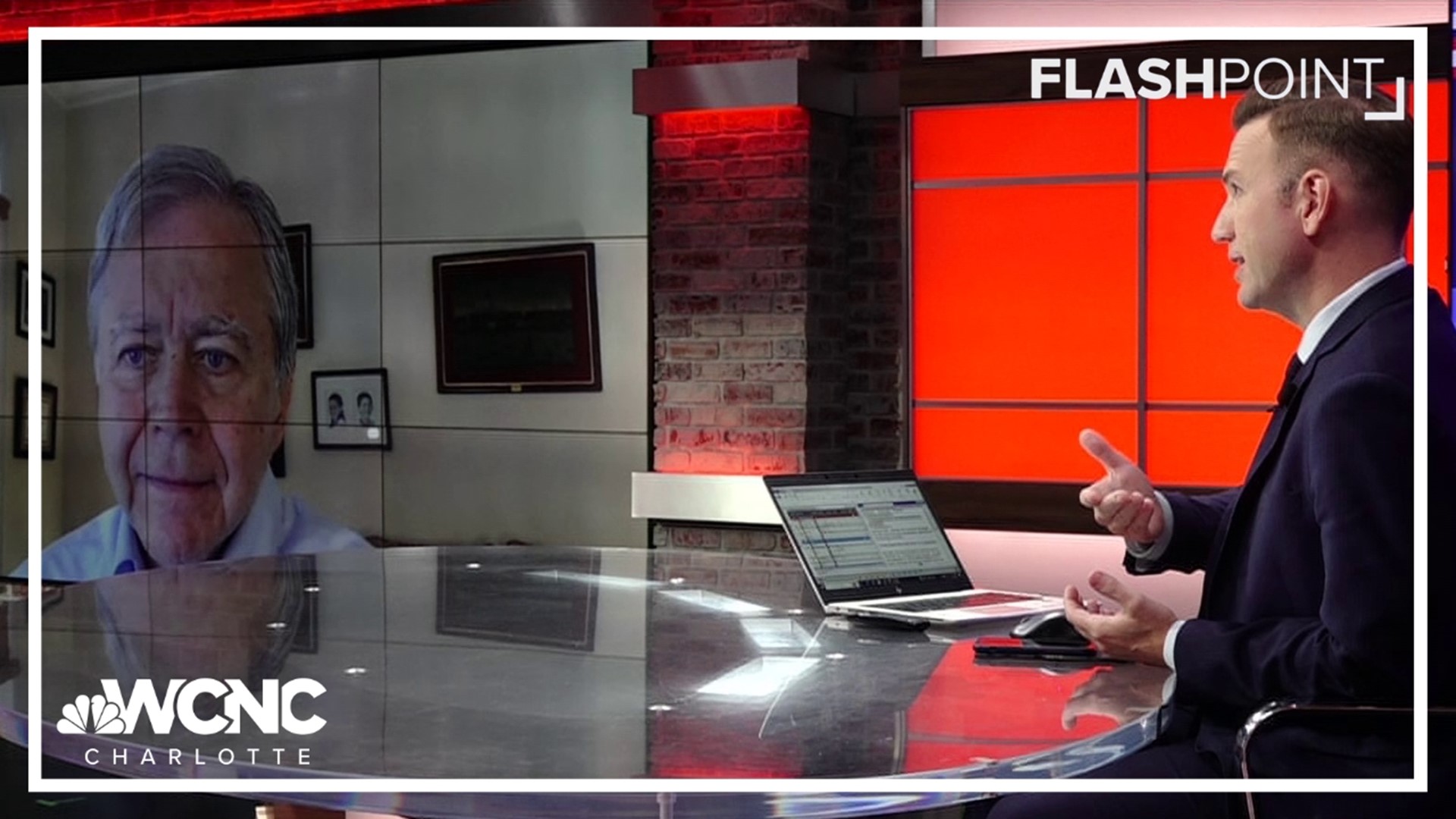CHARLOTTE, N.C. — In a simple vote to fund a redesign of the LYNX's Red Line commuter rail last week, Charlotte City Council seemed to signal a big development in the city's overall mobility plan, which has been mired by inaction recently.
"There have been very promising developments. And we are hopeful that we will be able to proceed with the rest of our mobility plan, having dealt with this issue, which held us up for quite a long time," Ed Driggs, Chair of the City's Transportation, Planning and Development Committee, said.
Driggs wouldn't elaborate on the new developments. But planning for the Red Line has stalled in recent years, in part because the design relied on the use of existing Norfolk Southern rail tracks.
In 2021, the company told WCNC Charlotte it would not share its tracks for public transit. But a spokesperson for Norfolk Southern recently gave WCNC Charlotte the following statement about sharing its tracks:
"Though this line remains a strategic part of our network, we have always valued our relationship with Charlotte and the surrounding communities. Wherever we can, we will continue to work with them on projects that intersect with our network and the needs of our customers."
A shift in Norfolk Southern's position could mean the Red Line development could proceed.
First suggested in 2007, the Red Line commuter line would connect parts of northern Mecklenburg County and Mooresville to uptown Charlotte. It would include stops in Huntersville, Davidson and Cornelius. City leaders voted Monday night to pay a contractor $5 million to update the Red Line design to account for growth and change in the area.
The other big hurdle city leaders will face: the North Carolina General Assembly. State lawmakers would need to approve any ballot referendum asking voters to pass a half-cent sales tax to fund the mobility plan. Republican leaders in Raleigh have seemed cool to the rail-centric approach the city adopted. But Driggs thinks there's an opening for discussions.
"I would say we have work to do there. It's not an issue of outright opposition," he said.
Driggs said best case scenario would involve a ballot referendum on the tax next year.
"After that there will be quick progress on near-term projects like buses and things like that, that can be realized soon. And the rail projects do require a lot of design, engineering, and other work so that the actual in-service dates for those would be a little further down the road," he said.
Contact Ben Thompson at bthompson@wcnc.com and follow him on Facebook, X and Instagram.
Flashpoint is a weekly in-depth look at politics in Charlotte, North Carolina, South Carolina, and beyond with host Ben Thompson. Listen to the podcast weekly.
SUBSCRIBE: Apple Podcasts || Spotify || Pandora || Google Podcasts || iHeart
All of WCNC Charlotte's podcasts are free and available for both streaming and download. You can listen now on Android, iPhone, Amazon, and other internet-connected devices. Join us from North Carolina, South Carolina, or on the go anywhere.

